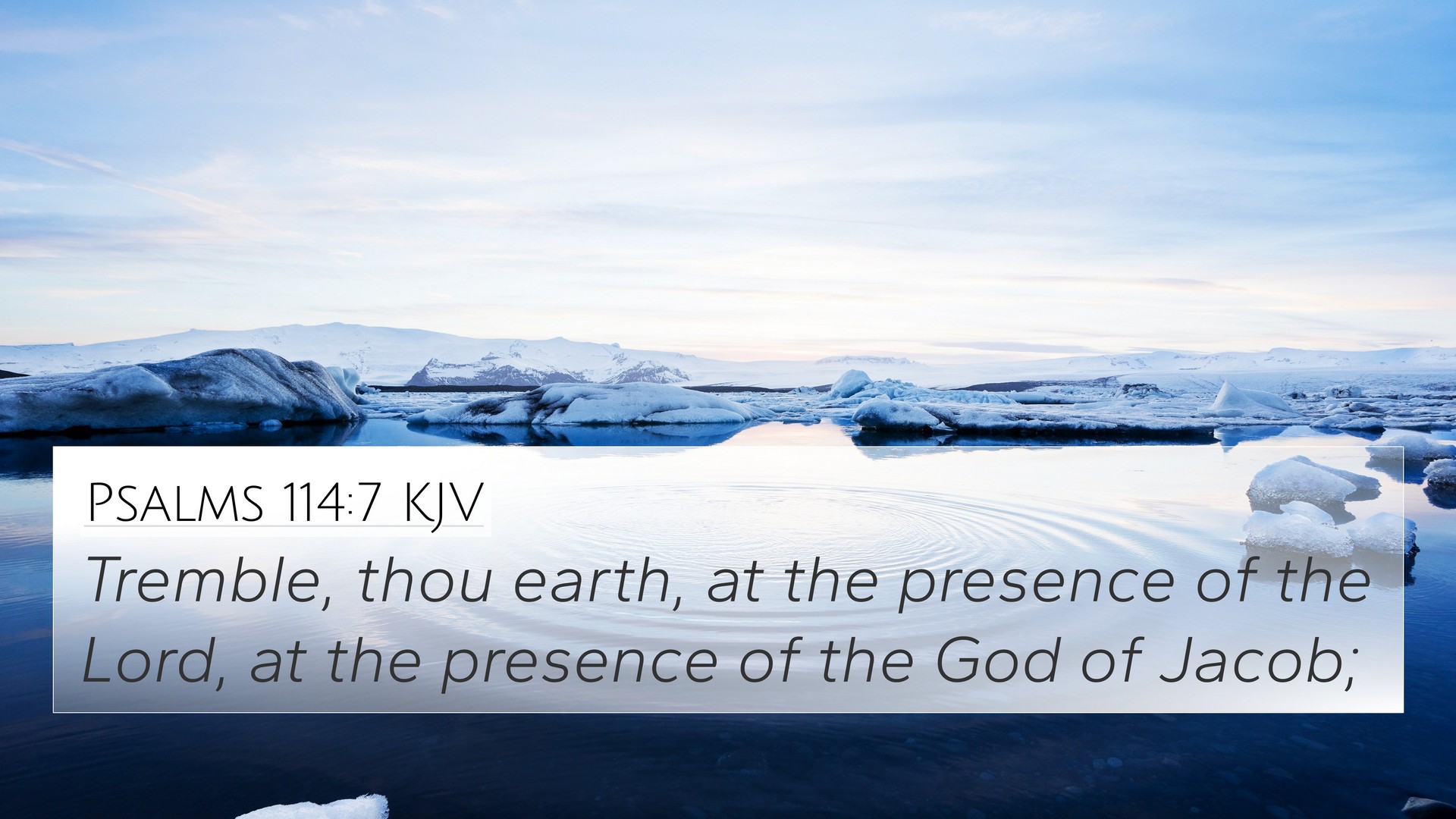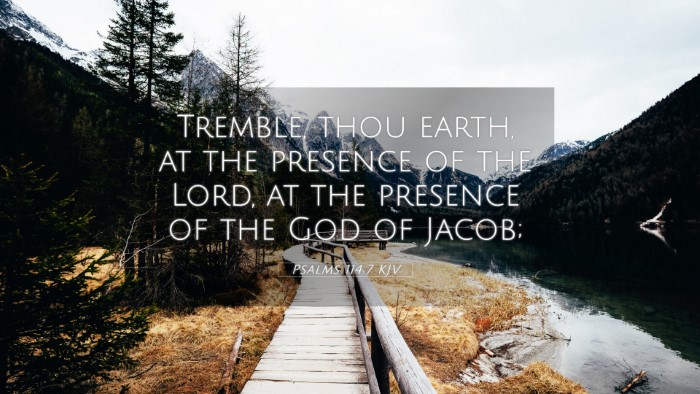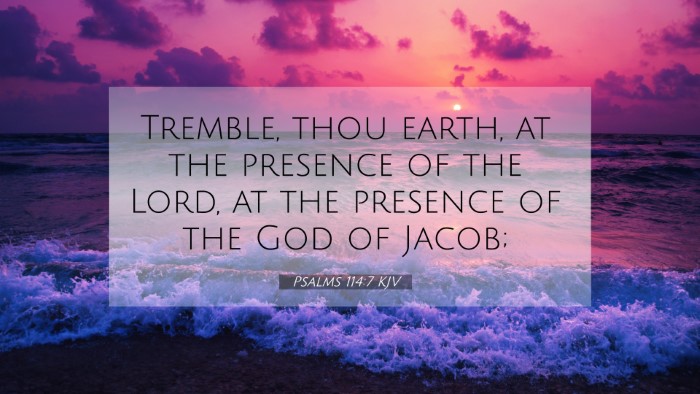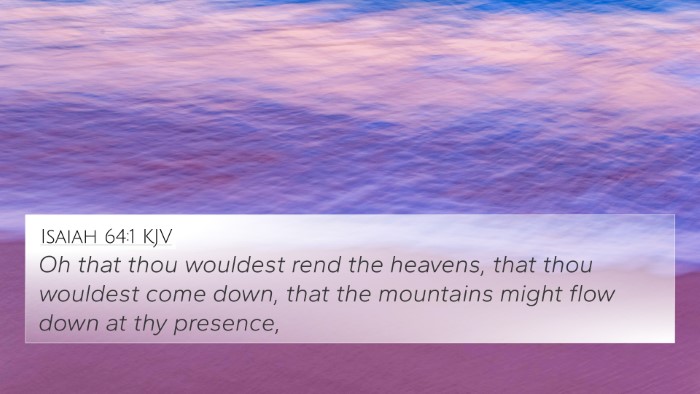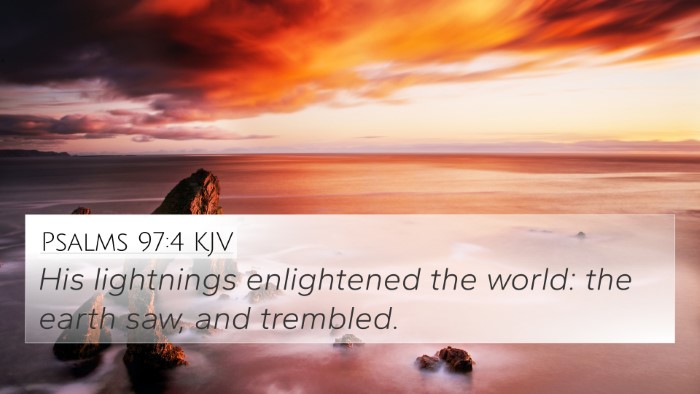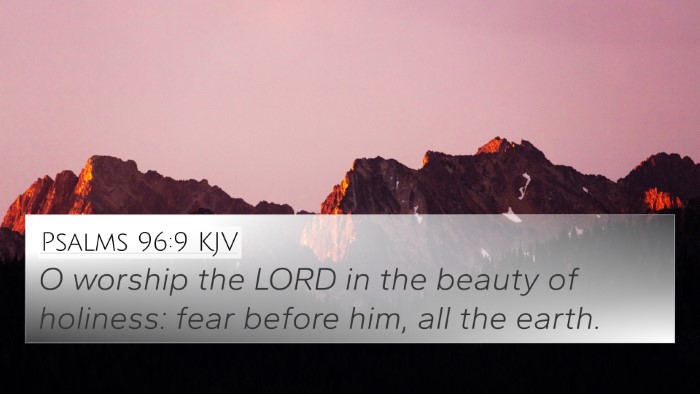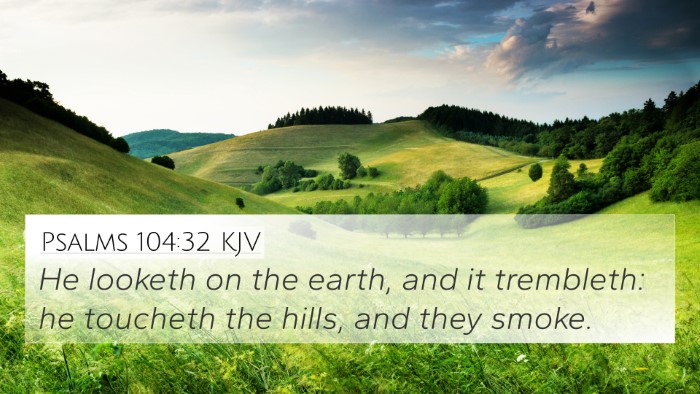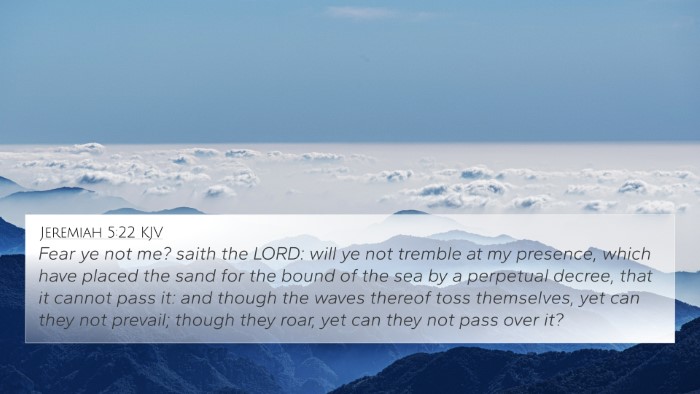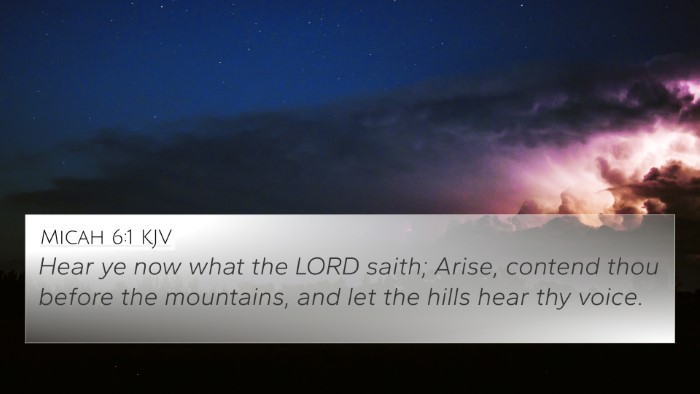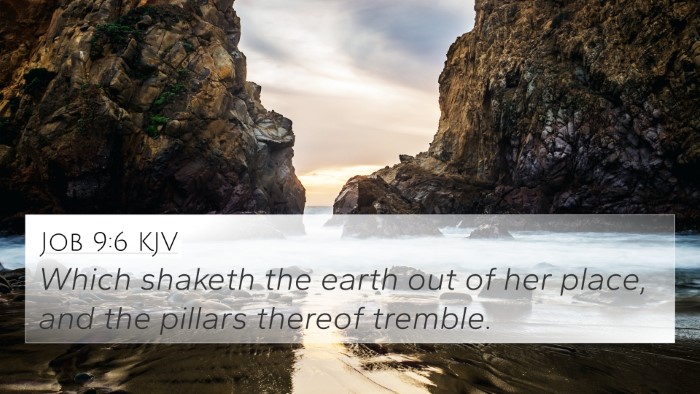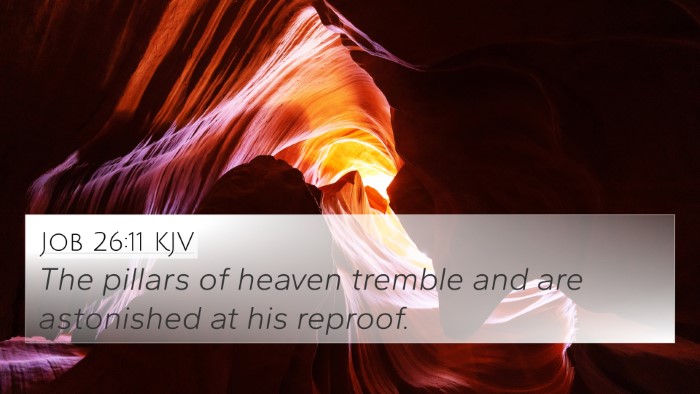Understanding Psalms 114:7
The verse Psalms 114:7 states: "Tremble, O earth, at the presence of the Lord, at the presence of the God of Jacob." This passage invites reflection on the majesty of God and the reverence that His presence instills in creation, particularly in the earth itself.
Summary of Key Meanings
This verse can be interpreted on several levels, reflecting both the immediate context in which it was written and broader theological implications:
- Divine Majesty: The call for the earth to tremble signifies the overwhelming power and majesty of God. As noted by Matthew Henry, God's authority is such that even the inanimate creation must respond to His presence.
- Presence of God: The phrase "presence of the God of Jacob" emphasizes the personal relationship between God and His covenant people, suggesting that the Creator is intimately involved in the events of human history.
- Response of Creation: Adam Clarke points out that the earth trembling is a personification, illustrating how creation reflects God's glory and power. The natural world is affected by God’s actions, which echoes the sentiments found in Romans 8:20-21, where creation longs for redemption.
Cross References
Understanding Psalms 114:7 can be enriched by examining its parallels and connections with other biblical texts. Below are several cross-reference verses that support the themes present in Psalms 114:7:
- Exodus 19:18: "Mount Sinai was completely in smoke, because the Lord descended upon it in fire." This verse reflects God's powerful presence that caused fear and awe.
- Habakkuk 3:6: "He stood and measured the earth; He looked and startled the nations." This emphasizes God's sovereignty over the earth.
- Isaiah 66:1: "Heaven is My throne, and earth is My footstool." This highlights God's transcendence and authority over all creation.
- Romans 1:20: "For since the creation of the world His invisible attributes are clearly seen." This supports the idea that the creation responds to God's presence.
- Matthew 28:18: "And Jesus came and spoke to them, saying, 'All authority has been given to Me in heaven and on earth.'" This connects the theme of divine authority to the New Testament.
- Philippians 2:10: "That at the name of Jesus every knee should bow, of those in heaven, and of those on earth, and of those under the earth." This demonstrates the reverence due to God’s name.
- Hebrews 12:26: "Yet once more I shake not only the earth, but also heaven." This speaks to God’s active role in shaping creation's response and the eventual transformation of the world.
- Psalm 96:9: "Worship the Lord in the beauty of holiness; tremble before Him, all the earth." This encourages a reverent attitude in the presence of God.
- Psalms 114:4: "The mountains skipped like rams, the hills like lambs." This supports the theme of creation responding joyfully to God's presence.
- Job 26:11: "The pillars of heaven tremble and are astonished at His rebuke." This reflects a cosmic response to God's might.
Thematic Connections
Psalms 114:7 connects deeply to certain biblical themes, reinforcing our understanding of divine glory and the righteous response it demands:
- Creation's Response to God: Throughout the scriptures, the idea that all creation acknowledges and responds to God's presence in fear and reverence recurs, particularly in Psalms and prophetic literature.
- The Holiness of God: The fear invoked by God's presence emphasizes His holiness, which demands respect and awe, prevalent in passages like Isaiah 6:3 and Revelation 4:8.
- God's Power in History: God acts in history with powerful manifestations that invoke awe, as seen in the exodus narrative and prophetic writings.
Conclusion
In reflecting upon Psalms 114:7, we are reminded that the presence of God is powerful and transformative. The earth itself acknowledges His authority and majesty. By exploring connections between this verse and others, we can better appreciate the depth of God's created order and the proper response it invokes from us. This verse invites us to not only acknowledge God's greatness but also to engage in personal reverence and worship.
